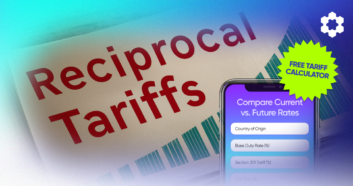Amazon has officially entered the budget-shopping race with its new mobile-exclusive platform, Amazon Haul.
Targeting consumers who flock to low-cost marketplaces like Temu and Shein, Haul offers a curated selection of products priced at $20 or less, most under $10. But while Amazon’s platform carries the promise of affordable pricing backed by its trusted delivery network, its launch has sparked mixed reactions among shoppers and sellers alike.
What Is Amazon Haul?
Haul represents a significant departure from Amazon’s traditional shopping experience. Designed to appeal to bargain hunters, it features its own search, cart, and checkout system within the Amazon Shopping app and mobile website. Customers can explore an array of categories, from fashion and home goods to electronics, all at, as the site says, “crazy low” prices. Extra savings sweeten the deal, with 5% off orders of $50 or more and free shipping on purchases over $25.
However, Haul’s interface has drawn comparisons to the flashy, emoji-laden aesthetics of its rivals like Temu and Shein. One observer likened it to a “casino slot machine,” with moving banners and product-packed pages aimed at impulse buyers and deal-seeking shoppers.
Trust: Amazon’s Competitive Edge?
A major selling point for Haul is Amazon’s reputation for reliability.
Unlike competitors such as Temu and Shein—whose purchases often leave consumers wondering whether the products will arrive or match their descriptions—Amazon offers a sense of security. The platform guarantees customer satisfaction with its A-to-z Guarantee and ensures free returns on eligible items within 15 days.
As Kevin King mentioned in his weekly newsletter, “Amazon typically delivers, so could Haul be the best of both worlds? Deeply discounted and duly delivered?”
The Skepticism Surrounding Amazon Haul
Despite these potential advantages, community reactions reveal significant skepticism:
- Product Quality Concerns: Critics have described Haul’s inventory as “cheap garbage” and questioned whether the low prices compromise quality. One seller commented, “Selling cheap affects the whole cycle from quality to customer experience. Let’s see how Amazon handles this.”
- Consumerism Worries: Others pointed out that Haul perpetuates “needless and senseless consumerism,” with additional concerns about its environmental impact.
- Trust at Risk?: While Amazon’s trusted platform initially appeals to budget-conscious shoppers, some wonder if offering ultra-low-priced goods could dilute that trust over time. Will Amazon dilute its reputation for affordable, but quality goods by leaning too far into the ultra – let’s be honest – cheap goods?
The jury is justifiably out on this newest platform from Amazon, and probably will be for the foreseeable future.
Final Thoughts: Can Amazon Haul Compete with Shein and Temu?
The business model behind Amazon Haul mirrors proven successes like Shein and Temu, which thrive despite stigma over product quality. Haul’s advantage lies in Amazon’s infrastructure and brand trust, but will that be enough to keep shoppers returning?
As Haul continues to evolve, Amazon faces the challenge of balancing affordability, quality, and trust. While the platform promises a gateway to low-cost shopping, its success will depend on whether it can address community concerns about product quality, sustainability, and customer experience.
For now, shoppers and sellers alike are watching closely to see if Haul becomes the best of both worlds – or a cheap platform that ends up at the bottom of the bin.




